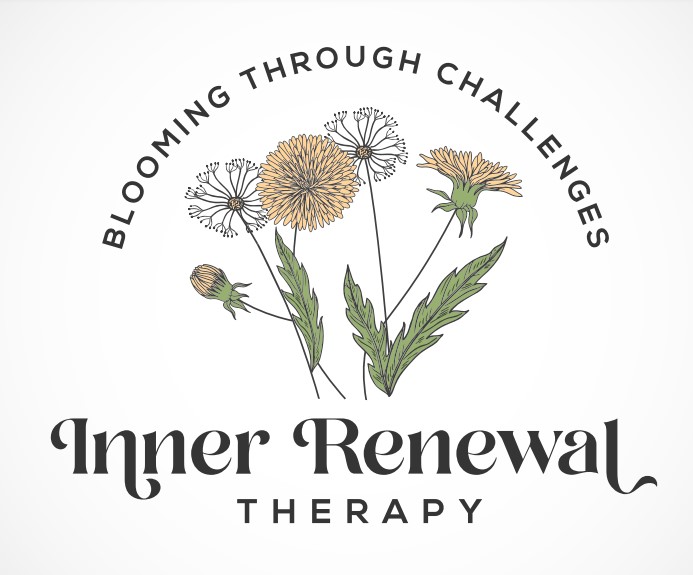Breaking the Stigma Surrounding Mental Health
It’s Time to Speak Up and Seek Help
Mental illness is not a dirty word. In a world where certain terms or subjects were whispered like forbidden secrets in our childhood, it’s crucial to acknowledge that mental health should be talked about openly and without shame.
When I was little, the word “butt” was a bad word in my house. When I heard other kids or adults using this word, even in my young brain, I wondered, “If they are saying ‘butt,’ are they bad too?” Little did I know, this early experience would shape my perception of how words and topics could carry unnecessary stigma.
Outside of my therapy world, where I’m known as a therapist, I’ve encountered people sharing about their personal experiences with mental health. It’s almost as if they whisper, “My son has anxiety,” “I struggle with OCD,” “I might have trauma.” But these whispers are often followed by statements of dismissal: “But it’s fine,” “I’m fine,” “I just need to get over it,” “They just need to get better friends,” “I bet they’d feel better if they just think about the positives.” These statements perpetuate the negativity surrounding mental health and the needs of those struggling with a mental health issue.
While awareness about mental health is growing, there’s still a pervasive “not in my backyard” attitude. However, the reality is that millions of people in the U.S. are affected by mental illness each year. The likelihood is that you have encountered, will encounter, or will likely experience a mental health issue at some point in your life. The “not in my backyard” (NIMBY) mentality is a common attitude when it comes to mental health and other societal issues. In the context of mental health, the NIMBY mindset often means that individuals are more accepting of or empathetic toward mental health issues when they’re affecting someone else, but they may have a different perspective when it’s a concern within their own lives.
Here are common factors at play:
Breaking the stigma surrounding mental health isn’t just about understanding others; it’s about understanding ourselves as well. It’s important to recognize if we’ve been conditioned to believe that mental illness is something “bad” or “weak.” To help you
reflect on this, here are some questions and prompts to consider:
1. Stigma and Denial:
● Have I ever downplayed my own mental health challenges or dismissed them as “not a big deal”?
● Do I find it easier to offer support and empathy to others with mental health issues, but struggle to do the same for myself?
● Have I ever heard myself or others say things like, “In my family, we just deal with it”? What does this statement reveal about my attitudes toward mental health?
2. Fear of Weakness:
● Have I ever hesitated to seek help for my mental health because I worried about appearing weak or vulnerable?
● Do I hold the belief that being strong means not asking for help when it comes to mental health?
● How has societal pressure to “tough it out” influenced my perception of mental health challenges?
3. Misconceptions:
● What misconceptions have I held about mental health issues? For example, have I believed that mental illness is extremely rare, or that it makes someone “crazy”?
● Have I ever been hesitant to seek therapy because I thought it was unnecessary, or because I believed that others have it worse than I do?
● How have these misconceptions affected my willingness to address my own mental health?
4. Lack of Understanding:
● Have I ever supported friends or family members dealing with mental health issues, but lacked a comprehensive understanding of what they were going through?
● Do I recognize that I might have underestimated the depth of the struggles involved in mental health challenges?
● How can I improve my understanding of mental health to better support both myself and those around me?
5. Cultural and Generational Factors:
● How has my cultural background or the generation I belong to influenced my attitudes toward mental health?
● Am I part of a culture or generation that emphasizes self-sufficiency and resilience to the extent that seeking help is seen as a sign of weakness?
● Can I identify ways in which these cultural or generational factors have shaped my perceptions of mental health?Understanding our own biases and conditioning regarding mental health is a crucial step in breaking the stigma. By asking these questions and reflecting on our attitudes, we can work toward a more compassionate and accepting approach to mental health, both for ourselves and for those around us.
Fast Facts About Mental Health:
● 1 in 5 U.S. adults experience mental illness each year.
● 1 in 20 U.S. adults experience serious mental illness each year.
● 1 in 6 U.S. youth aged 6-17 experience a mental health disorder each year.
● 50% of all lifetime mental illness begins by age 14, and 75% by age 24.
● Suicide is the 2nd leading cause of death among people aged 10-14.
These statistics underscore the importance of addressing mental health with compassion, understanding, and a commitment to reducing stigma.
One of my favorite parts about being a therapist is witnessing not only the tremendous benefits that clients experience but also the positive ripple effects in their inner circles. Clients have shared stories like, “I use that skill you taught me in therapy at work all of the time and it works!”, “My mom actually respects my boundaries now,” and “My friend said she’s been wanting to get therapy too and was encouraged when I opened up to her.”
Personal Stories of Triumph
Case 1: Overcoming the Shadows of Anxiety
Emily, a young woman in her 20s, struggled with crippling anxiety. She found it challenging to leave her home and interact with others. After seeking therapy, she learned strategies to manage her anxiety and gradually began to participate in activities she once avoided. Today, she’s a confident and outgoing individual who can proudly say that anxiety no longer controls her life. Does she still manage symptoms of anxiety? Yes, but now she has the skills and confidence to not allow anxiety to steal her joy.
Case 2: Liberating the Spirit from Trauma
Jake had experienced traumatic events throughout his life, leading to severe emotional distress. He spent years believing that his trauma wasn’t as bad as other people’s and therefore with time he’d just get over it. Years went by and his distress only worsened. Through therapy, he confronted his past and started his healing journey. Not only did his life transform, but his newfound resilience also inspired others to seek help and start their own journey toward healing.
Case 3: Embracing Authenticity and Setting Boundaries
In her 30s, Sarah grappled with self-worth and struggled to set healthy boundaries in her relationships. Through therapy, she gained the confidence to assert herself and develop healthier connections. Her personal growth also inspired her friends to explore their own relationship values and boundaries, concepts they hadn’t previously considered.
How to deal with Mental Health Stigma?
● Don’t delay getting treatment.
● Use Facts to share the truth about mental health.
● Tell your story (if you want.)
● Be mindful of your language and your tone and approach when speaking about mental health issues.
● Speak up when you hear people make inappropriate comments about mental illness. People living with mental illness should be respected and accepted just like everyone else.
● Join a support group.
● Remember that you are more than your mental illness.
Breaking the stigma surrounding mental health starts with open conversations and sharing personal stories of triumph. It’s time to embrace mental health as a crucial part of our overall well-being. Seek help when needed, support those around you, and remember that seeking therapy is not a sign of weakness; it’s a powerful step towards growth, healing, and living a more fulfilling life. It’s time to let go of the whispers and replace them with a resounding call for understanding, empathy, and acceptance.
Sending dandelion wishes, Alina

